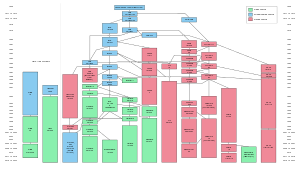
Or how, being weaned on nutritious Bell Labs commonsense, and having dined on Oakeshott's critique of rationalism, I was ready to digest the DevOps feast.
I began my career as a software engineer working on MS-DOS computers in the mid-1980s. But before the decade was over, I had begun working on UNIX platforms. As I came to appreciate the elegance of the UNIX programming environment, I sought out the writings of the people who had been instrumental in its creation. This was the tremendous group of software engineers assembled in Bell Labs from the late 1960s through the early 1980s, including Ken Thompson, Dennis Ritchie, Brian Kernighan, Alfred Aho, Peter Weinberger, Bjarne Stroustrup, Jon Bentley, and P.J. Plauger. From them I learned a pragmatic, incremental style of developing software. Rather than pursuing some grand, abstract vision, I learned to deliver minimal but working software to users as regularly as possible, and to learn from user feedback what further features needed to be added.

By the 1990s, I had learned enough that I felt ready to make my own contributions to this literature, writing on the benefits of symbolic interfaces, pioneering intranets as a way of delivering in-house software, touting infrastructure as code, describing generic client-server interfaces, stressing the basics of OOP, and more.
Subsequently, in a decade away from software engineering, I conducted extensive studies on rationalism. These studies prepared me to understand development methods like the waterfall model as examples of "dreaming of systems so perfect that no one will need to be good"* -- these practitioners were practicing "rationalism in software engineering." Or, to put it in my colleague Nassim Taleb's terms, these systems were designed to be robust, impervious to change. (Consider the desire to "lock down" the software's feature set in the requirements phase of the waterfall model.) What was needed instead were systems that were antifragile, and actually thrived on change.
Thus, when I returned to software engineering and came across the DevOps movement, my experience was not one of meeting someone brand new, but of re-acquainting myself with an old friend who was sporting a new look, and had learned some fancy new tricks since we had last met. In particular, the DevOps approach does not try to ensure design is 100% complete before any code is written: an impossible, rationalist dream. The DevOps approach does not attempt to ensure all software leaving a developer's hands is bug-free: again, an impossible, rationalist dream. And it does not attempt to ensure that all released software is 100% crash-free and secure. Instead, the DevOps approach recognizes that humans are fallible and errors will occur, and so stresses fast recovery from errors and a low-blame culture that emphasizes learning from errors rather than punishing transgressors. So, for instance, rather than blaming the programmer who released a piece of buggy code into production, the DevOps approach asks, "What test haven't we written that would have caught that bug before release?"
* T.S. Eliot, "Choruses from the Rock"
© 2017 Gene Callahan